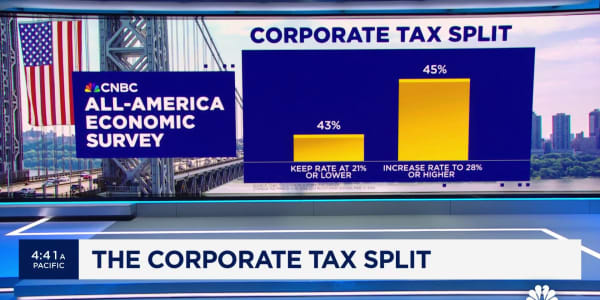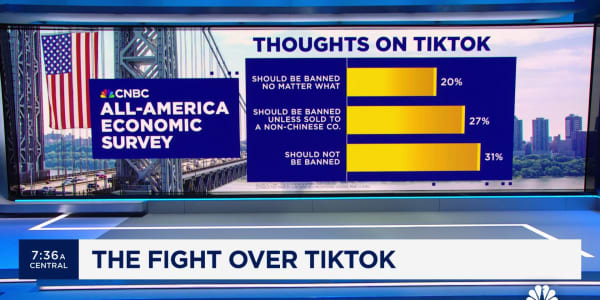
The job market is so tight it appears as if a lot of Americans feel they can tell their boss: "Take this job and shove it."
The CNBC All-America Economic Survey asked employed Americans if they were confident they could find another job both in their field and in their area and at similar pay and benefits. Sixty-one percent of the public is either "very" or "pretty" confident they could leave their job and find a new one within a couple of months. Thirty-seven percent is not confident, and just two percent is unsure.
The quarterly poll of 801 Americans around the country (from all regions and income groups and including both the employed and unemployed) has a margin of error of plus or minus 3.5 percent. It was conducted by Hart Research Associates from the Democratic side and Public Opinion Strategies from the Republican side.
The issue of tightness in the labor market (where there are more jobs relative to workers) is of critical importance to the overall economic outlook. Several Federal Reserve officials have suggested we are at or near "full employment" — a level where most of those who want a job can find one.
But Fed officials worry that with strong economic growth and tax cuts and fiscal stimulus from increased government spending, the economy could be pushed beyond full employment to a place where worker wages rise strongly and create a wage-price spiral. That could force the Fed to raise rates more quickly to slow the economy.
But what's true generally is not necessarily the case when parsing the data by race, age, gender, income and education.
For example, 66 percent of respondents ages 18 to 34 say they are confident of finding a new job, compared to just 47 percent of the 50 to 64 group. And 72 percent of those with incomes greater than $100,000 say they are confident, compared with 39 percent of those with incomes below $30,000.
Men are more confident than women by a 64 to 57 percent margin, and blue-collar workers are more confident than white-collar workers.
In a follow-up question, CNBC asked those respondents who say they are employed if, in their industry, there were more jobs than workers or workers than jobs. Thirty-seven percent see a balanced supply and demand for labor; but another 37 percent say they see more jobs than workers while just 21 percent see more workers than jobs.
Again, those with higher incomes and more education are more likely to report a stronger job market in their industry, as are Republicans compared with Democrats. Judged by the data, the most jobs relative to the number of workers are available in the Midwest, followed by the Northeast and the West. The South has the least favorable balance for workers, but respondents from the region still see more jobs relative to the number of workers by a 10-point advantage.





